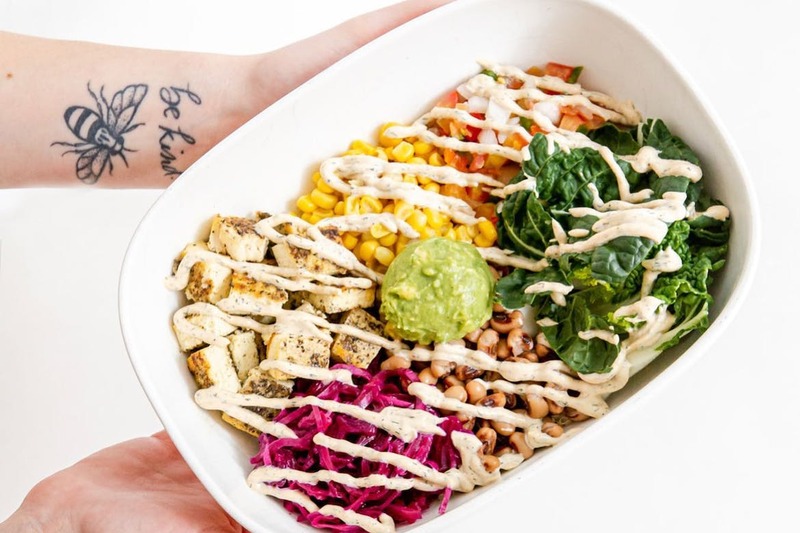
Although Parka Food Co. isn’t the newest kid on the Queen West strip -- it opened in the winter of 2017 -- its rebrand last summer came with an updated menu and a more pronounced move toward sustainability. As the founder and head decision-maker at this Toronto vegan comfort food restaurant, Eric Chao is perhaps not the most likely restaurateur. With a background in corporate strategy for retail apparel brands, the vegetarian turned vegan turned his dream of launching a restaurant into an extension of his personal beliefs. It was another consumer-facing business that allowed him to trade out clothing for food.
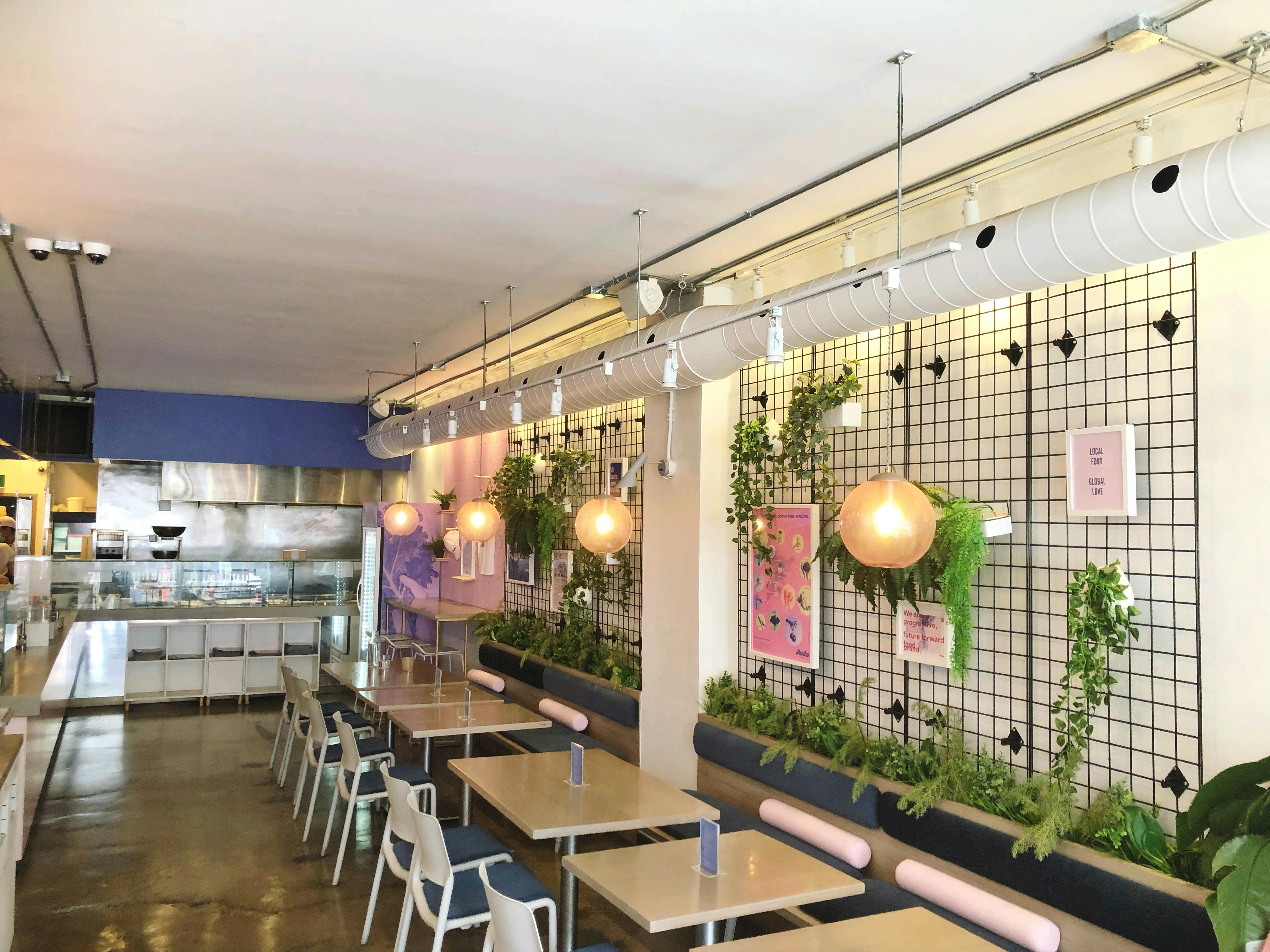
“I’m vegan and always wanted to start a business where I could make a positive impact based on something I cared about,” Chao, meat-free for 15 years, says, sitting across from me at the leafy Queen West resto. I say “leafy” because the interior is decorated with plant life, a literal ode to the eco-consciousness attached to the spot. Upon entering the restaurant, you are greeted by a spotless white wall with the Parka logo in a bold violet font. The rest of the establishment is a long chamber of pink, lavender and white hues with clever tongue-in-cheek signage extolling the virtues of veganism and sustainability. There's a curbside patio outside that allows for noshing and people-watching.
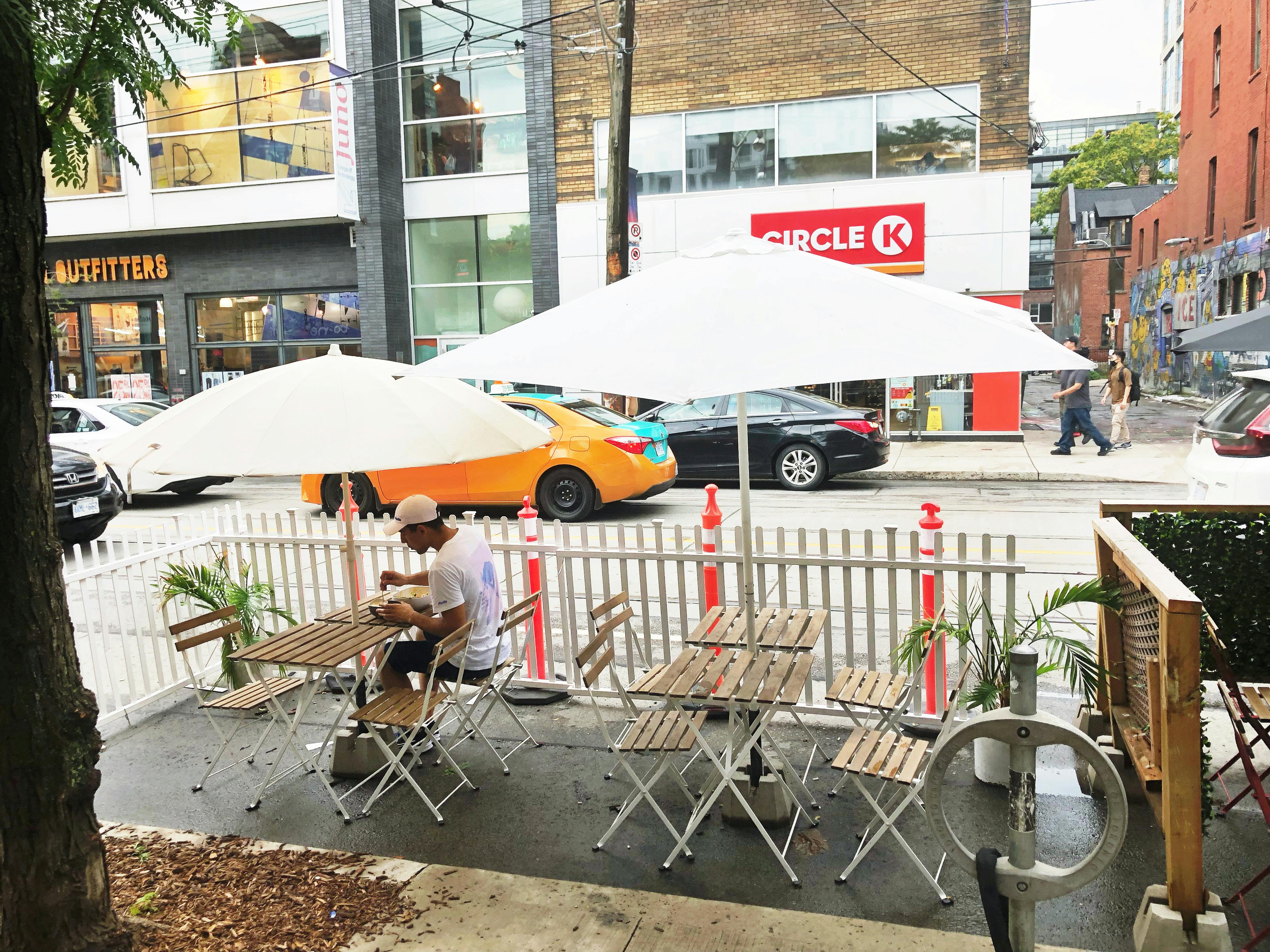
“We are very focused on sustainability in everything we do,” explains Chao. “Not only is our menu as sustainable as possible, but everything from our waste management to uniforms is as sustainable as we can make them.”
After a lot of research on the topic, Chao and his team learned that what we’re told is biodegradable or compostable isn’t because the city’s renewable waste systems can’t handle those items. As it turns out, what’s happening is those “biodegradable” containers and utensils end up in our landfills anyway, causing more environmental damage.
“So now we only use wooden cutlery, which is naturally biodegradable,” says Chao. “We work with a waste management company that will separate plastic from paper since the City of Toronto also doesn’t recycle coffee cups or any paper with plastic lining.” It costs the restaurant more money to deal with their waste, but Chao felt it was necessary to do it versus tossing the garbage into bins and hoping for the best.
The entire restaurant itself is powered by Bullfrog energy, a renewable energy company, and all staff uniforms are made with recycled cotton. Parka Food Co. is even launching a program that allows take-out customers to bring back their containers to be sanitized and reused. Top-down, everything from the food, the clothes on their backs, and the restaurant itself is geared toward sustainable practices.

Of course, that’s all well and good, but the food needs to be on point. That’s another area where Parka Food Co. doesn’t disappoint. The restaurant’s menu changes with the seasons, and right now, locally grown cauliflower makes for a great starter in the form of cauliflower wings. They come in 3 options -- hot dust, buffalo and chicken fried -- with a gracious side of creamy garlic aioli. They are coated in a secret “shake and bake” type of seasoning and are perfectly crunchy on the outside while giving way to a buttery soft interior. The aioli dip gives you an extra hit of savoury that takes the “wings” to a different level. Caesar Chicken Tofu wrap includes chicken fried tofu, chickpea croutons, chopped bok choy, kale, pickled red onion, and a vegan caesar dressing wrapped in a whole wheat tortilla. A great lunch option that’s quite filling without being heavy.
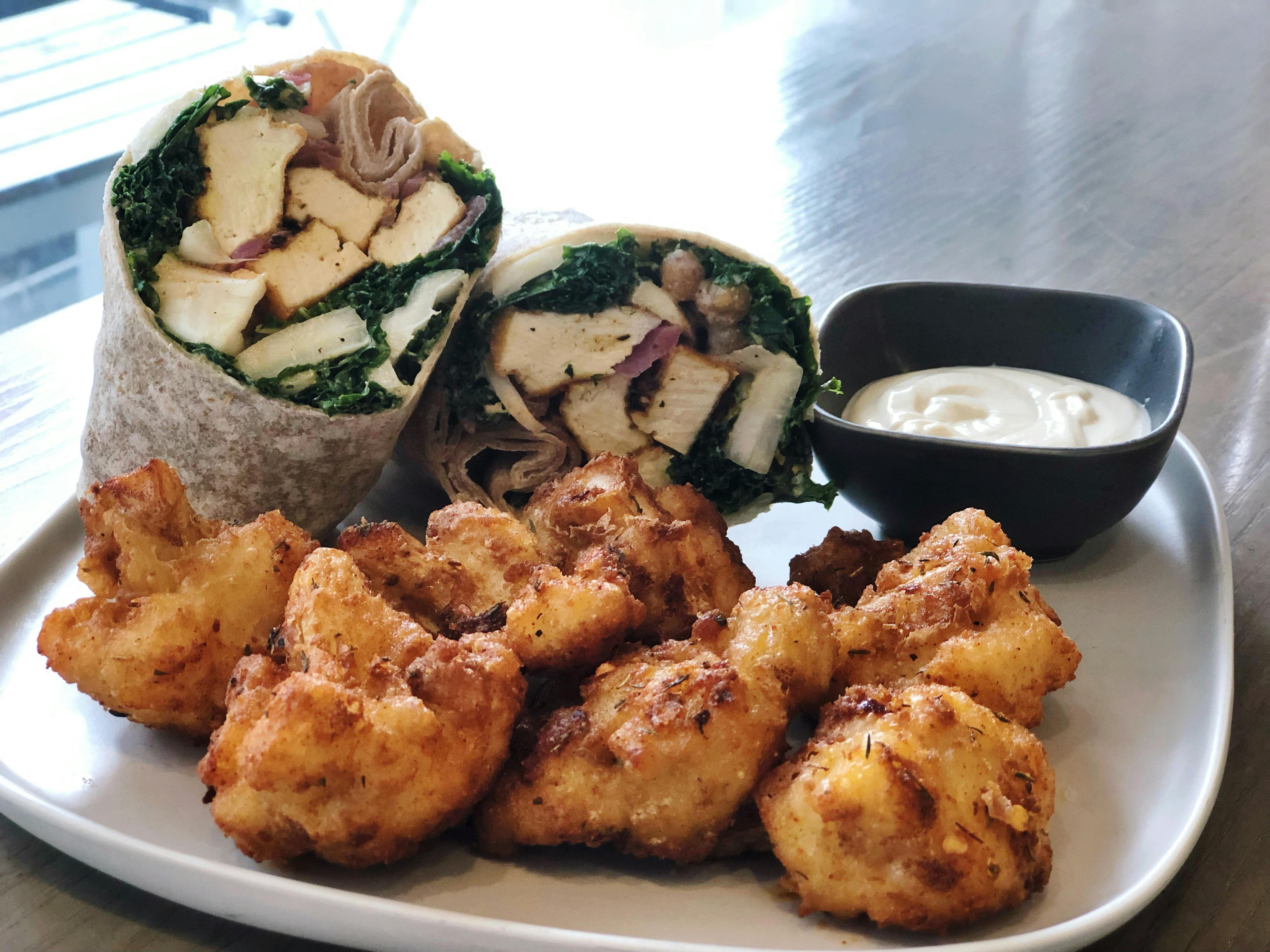
Poutine Fries are an unexpected assemblage of cashew cheese, fried potatoes and organic mushroom gravy. Shoestring potatoes -- frozen oddities need not apply -- are crispy where they need to be and not overwhelmingly salty. The mushroom gravy has the same consistency as any meat-based sauce, and you would be hard-pressed to tell the difference. Store-bought vegan cheeses can be overdone and over-processed in a company’s attempts to give you a cheesy flavour. Here, a balanced cashew cream stands in with little bites of mushroom, giving it the consistency of cheese curds. My poutine was accompanied by the aforementioned Portobello Burger, marinated organic portobello, chipotle aioli, onion rings, guacamole, organic arugula, and plum tomato, layered between a soft whole wheat bun. The mushroom marinade hints at chargrilled smokiness, while the chipotle aioli offers a low dose of heat with a touch of welcome tanginess. Although you can get it if you ask, I didn’t even miss the ketchup.
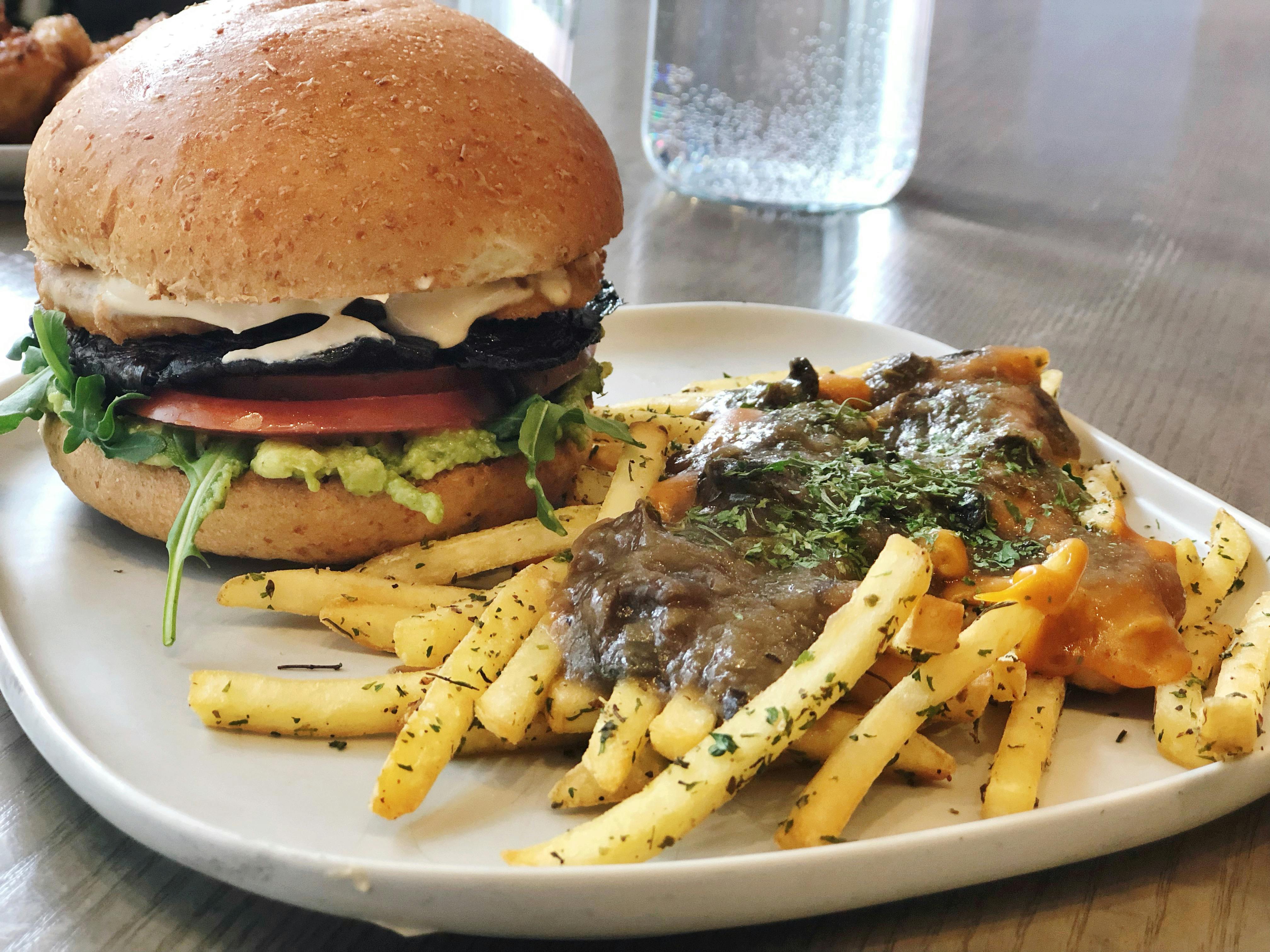
As far as salad bowls go, the Chipotle Cauliflower could be considered a starter in a smaller portion or a whole meal on its own in a bigger one. It comes with blackened cauliflower, black beans, corn, guacamole, pico de gallo, pickled red onion, chopped bok choy, quinoa and chipotle aioli. It’s hard to elevate a salad bowl beyond what we’ve all become used to, but Parka Food Co. should be given credit for doing so admirably. I’m a hard-to-please salad person, but if I were going to eat a salad with some variety and flavour, it would be this one.
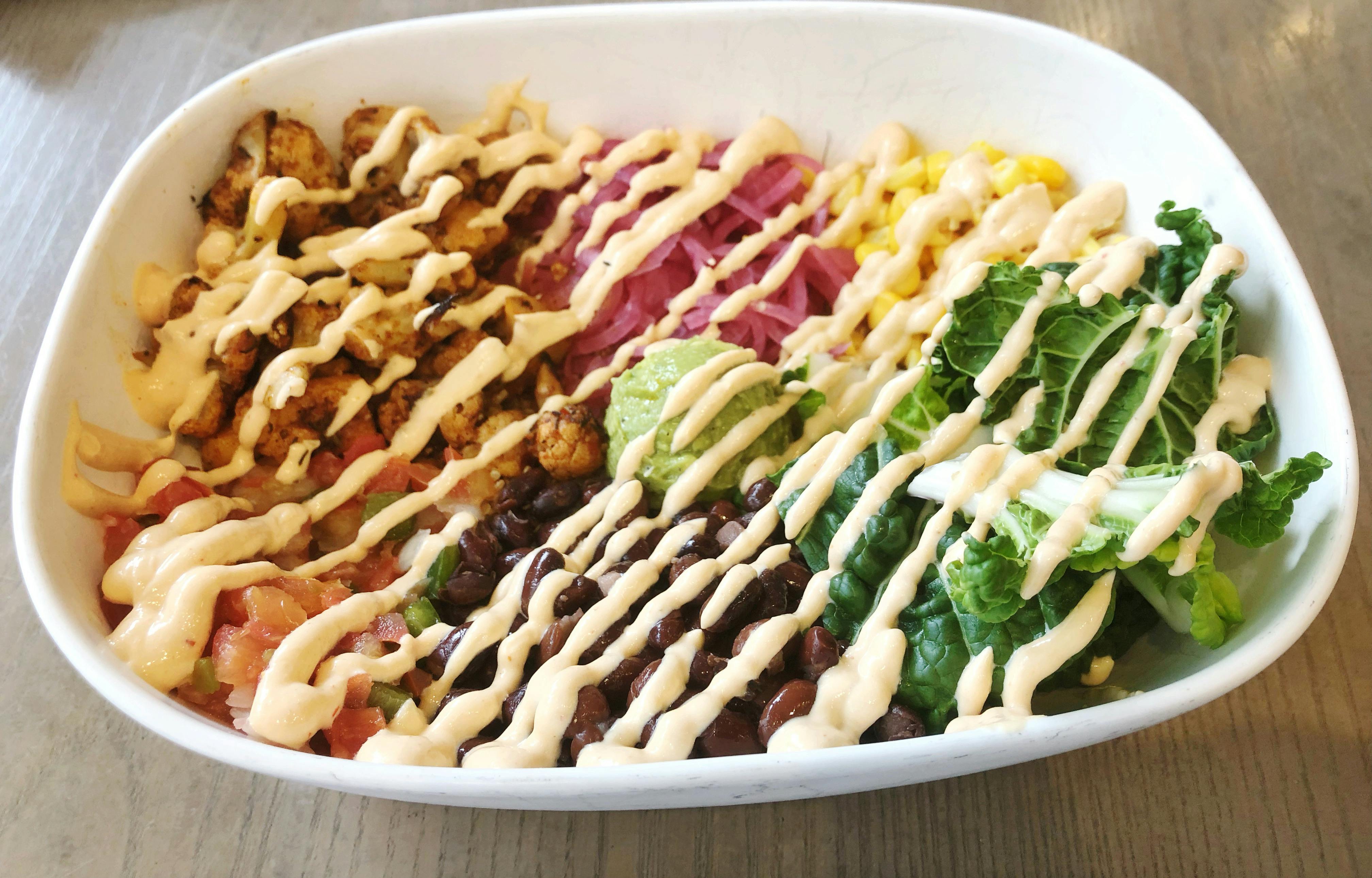
Chao and his team work together to brainstorm dishes for the menu using nothing but their experienced palates and trial and error. According to Chao, there’s a reason for everything on the Parka Food Co. menu.
“Not only do we try to source locally, but there’s a heavy focus on future 50 foods -- a list of 50 foods the World Wildlife Fund has identified as supporting global biodiversity and local agriculture -- we don’t do things based on trends,” Chao says. “We offer plant-based comfort food that focuses on whole foods. There’s no “beyond meats” or fake meats here, and everything is created from vegetables and legumes.”
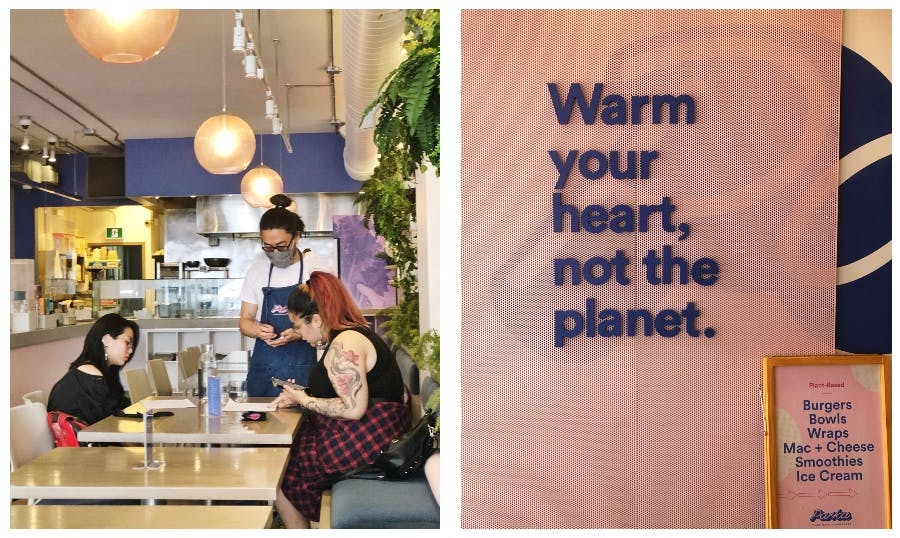
Chao points to a goal of not only changing people’s perspectives on vegan food but also wanting customers to feel good afterward. Although they’re making comfort food, they’re not just making a vegan version of fast food that makes you feel terrible afterward. They adjust their menu based on what’s local and in season and use food sources like cactus in their dishes because the plant grows anywhere easily with minimal environmental impact.
“Anyone can make something that tastes good going down, but what it does to you afterward is the hallmark of a good meal,” adds Chao. “Our goal is to make something as clean as possible that we can still transform into something delicious everybody can enjoy.”
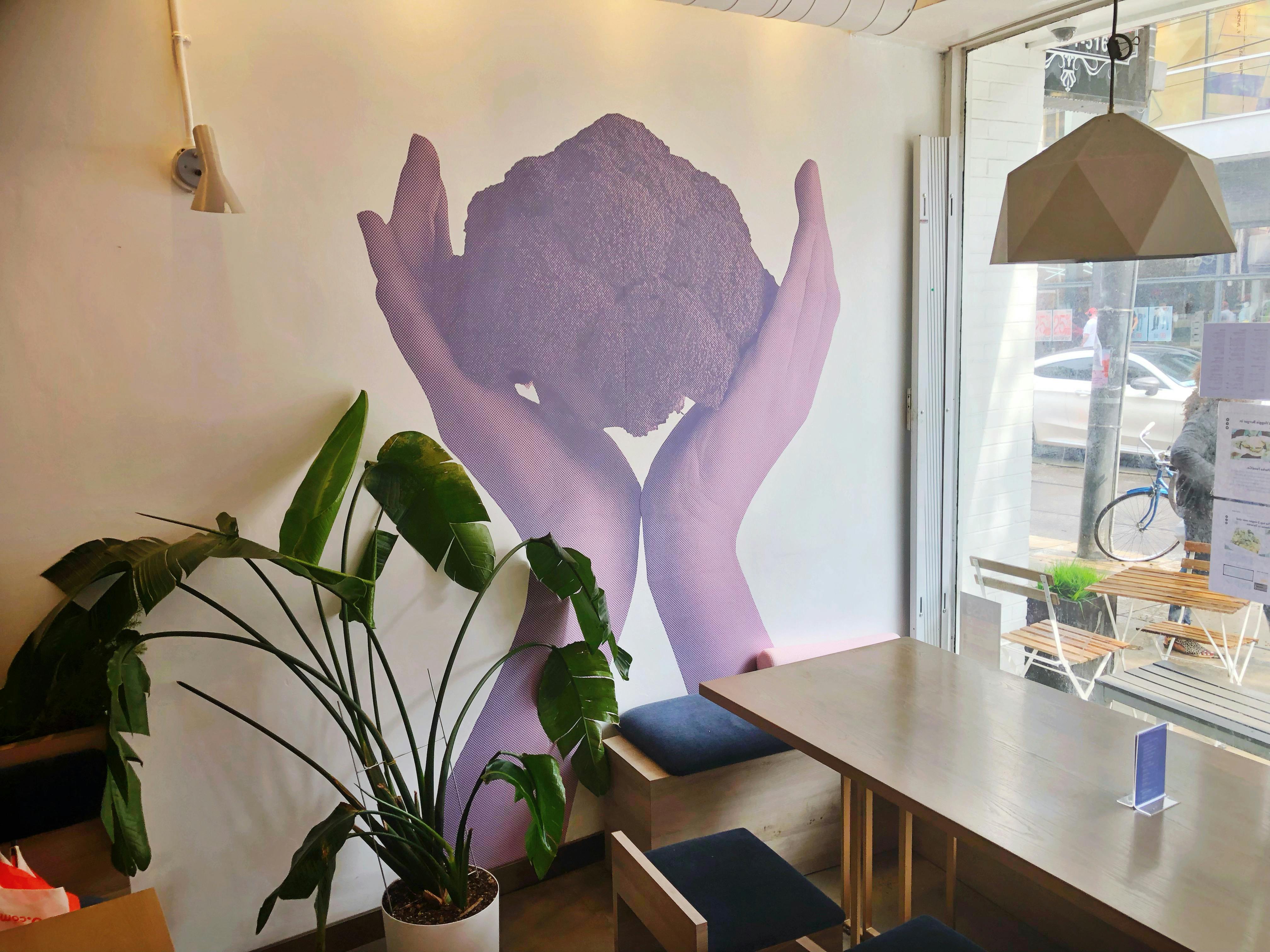
Reusing the stems of foods like bok choy and broccoli in soups donated to community shelters makes them both stewards of the environment and their community. When I ask Chao about the restaurant industry's responsibility to our planet, his answer encapsulates the spirit of Parka Food Co.
"There's a role for everybody to play in securing the future for ourselves and the next generation. If we inspire some people, that's great, but I think this is a collective effort we need to move on."









